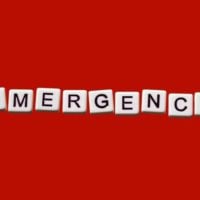Deadline: 23-Nov-21
The European Commission (EC) is pleased to announce the Integrated Disaster Risk Reduction for extreme climate events: from early warning systems to long-term adaptation and resilience building.
In contemporary society, the capacity of communities and governments to manage expected and/or unexpected extreme climate events depends heavily on effective governance throughout the entire Disaster Risk Management cycle. This covers operational mechanisms ranging from short-term actions (e.g. early warning and forecast-based actions) to long-term adaptation strategies and resilience building, including nature-based solutions. A coherent integration between Disaster Risk Reduction, Climate Adaptation policies and Sustainable Development Goals as fostered by the European Green Deal and major UN initiatives should result in a comprehensive resilience framework, while improving synergies and coherence among the institutions and international agencies involved.
The effective implementation of global and European risk governance and policies to enable integrated disaster risk reduction for extreme climate events requires a collaborative involvement in risk assessment and information sharing across involved institutions, including the civil and private sector and the population.
Funding Information
The check will normally be done for the coordinator if the requested grant amount is equal to or greater than EUR 500 000, except for:
- public bodies (entities established as a public body under national law, including local, regional or national authorities) or international organisations; and
- cases where the individual requested grant amount is not more than EUR 60 000 (lowvalue grant).
Expected Outcomes
Projects results are expected to contribute to some of the following outcomes:
- Improved dialogue and cooperation among scientific and technical communities, stakeholders, policy-makers and local communities in the field of extreme climate events and associated events (e.g. forest fires, droughts, floods, heatwaves and storms) and disaster risk reduction.
- Enhanced community engagement for prevention, preparedness, response, recovery and learning to extreme climate events by strengthening knowledge and involvement of volunteers linked to recognised organisations into the planning, design and implementation of prevention, including building with nature, preparedness and emergency response activities.
- Strengthening of disaster risk reduction and resilience building through innovative use of media means, namely by examining the potential of new communication tools and apps for better preparedness and response.
- Overview of existing knowledge, tools and development of new tools (innovative data collection, satellite data, data harmonisation, artificial-intelligence tools, algorithms, sensors and decision-aid approaches) for early warning, response and resilience / adaptation to be demonstrated in the framework of real-case scenarios designed for training addressed to first and second responders, (national, regional, local) authorities and populations. The overview should document how legal and ethical rules of operation as well as fundamental rights such as privacy and protection of personal data are taken into account.
- Based on the demonstrations, development of new governance strategies and robust decision-support methodologies for integrated risk reduction and improved adaptation to climate extreme events.
- Improved understanding of enablers and barriers to multi-risk governance frameworks and multi-risk thinking, by involving interdisciplinary teams in different fields, particularly the social and behavioural sciences.
- Cost-benefit or cost-effectiveness analyses of investment and regulatory strategies to protect people and nature in vulnerable areas.
- Identification of production/livelihood practices (goods, services, activities etc.) at community and national level that contribute to increased local/global climate risks, and explore how these can be adapted so that they are both economically and environmentally sustainable.
Eligibility Criteria
To be eligible for funding, applicants must be established in one of the eligible countries, i.e.:
- the Member States of the European Union, including their outermost regions;
- the Overseas Countries and Territories (OCTs) linked to the Member States;
- eligible non-EU countries:
- countries associated to Horizon Europe;
- low- and middle-income countries.
For more information, visit European Commission.









































